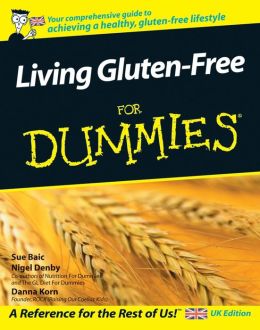Not a day goes by that my wheat allergy doesn't adversely affect my snacking abilities. It's incredibly frustrating, especially because I'd really like to eat the pastries my coworkers bring into the office from time to time. But what's more irritating are the incessant comments from the peanut gallery about how "trendy" it is to be gluten free and how "everyone nowadays is gluten free." It's annoying because it's kind of true. It's impossible to deny that being gluten free has reached craze status in the U.S. Everywhere I look, ordinary products (like Rice Chex cereal for instance, which has always been made of the same ingredients) are now flying their "Gluten Free" banners proudly. Suddenly, its a thing. But that's the whole dilemma, it is a thing. Celiac disease is real, wheat allergies are real and gluten sensitivity is real, but hoards of bandwagoners have clouded this -- my, they are a heavy load aren't they?
Image via: www.sweetclovermarket.com
If you're considering adopting a gluten free diet for its alleged health benefits, there a few things you may want to mull over. First of all, what exactly is gluten, anyway? Gluten is simply a protein found in the grains, wheat, rye and barley and it's pretty great. It gives dough that wonderful elasticity we all love so much. It makes bread rise and pizza crust so soft and delicious. However to some people, like those seriously affected by celiac disease, an autoimmune disorder of the small intestine which prevents it from absorbing necessary nutrients, it's the worst thing ever. It's responsible for stomach cramps, diarrhea and serious, irreversible intestinal damage. If left untreated, celiacs disease can lead to malnutrition, severe headaches and even increased risk of gastrointestinal cancer such as lymphoma. Basically, it's serious business. Those suffering from celiac disease have a one way ticket to Gluten Free-town. It's unlikely they'll ever get to sink their teeth into a legit slice of pizza for the rest of time (the horror!).
If celiac disease isn't all you thought it was cracked up to be, there's always a plain old wheat allergy. Wheat allergies are the most elusive of the gluten intolerances. Incredibly rare, wheat allergies are pretty tricky as wheat has several allergenic components. Thus, it can be difficult to pinpoint the severity of the allergy and often takes lots of trial and error to determine. Wheat allergies manifest themselves similarly to other food and respiratory allergies and cause a bevy of nasty side effects including eczema, nausea, palpitations and Irritable Bowel Syndrome.




